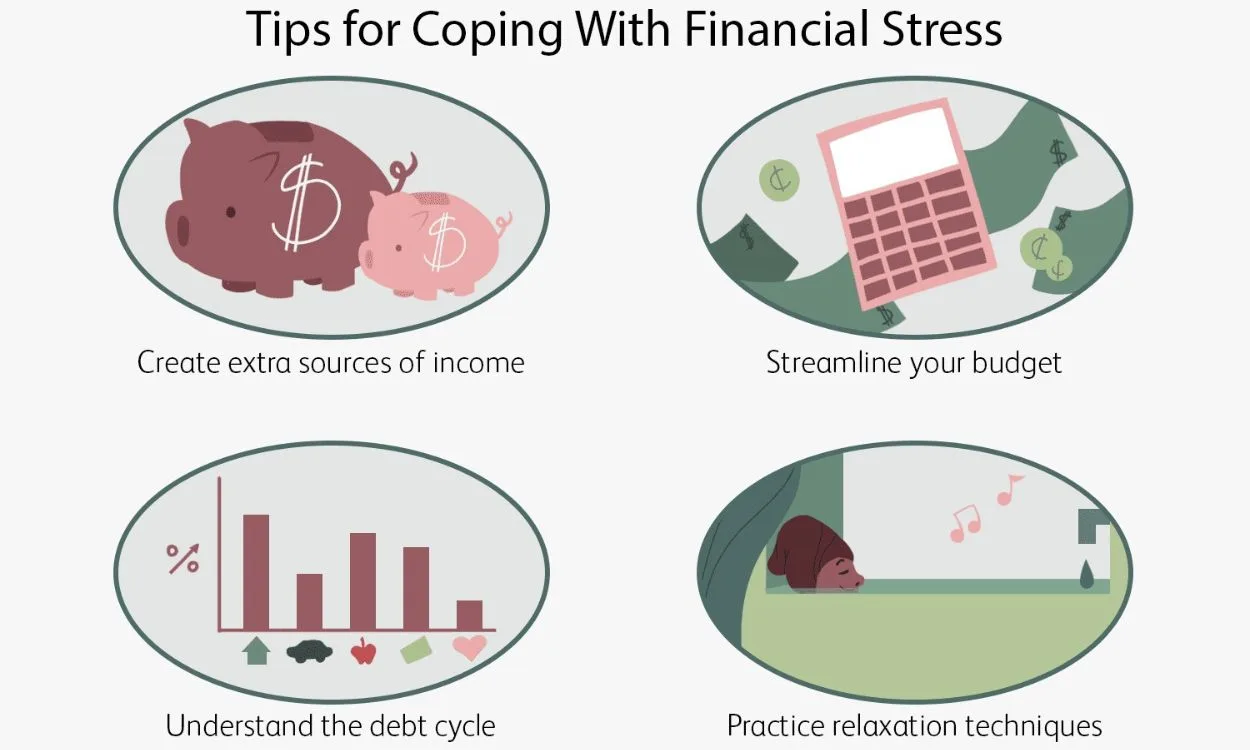How does financial stress impact mental health?
Financial stress is a common problem that affects many people, and its impact on mental health should not be underestimated. In a country like India, where economic disparities are prevalent, financial stress can be particularly challenging for individuals and families. In this article, we will explore the various ways in which financial stress can impact mental health and offer some strategies to cope with this issue.
Financial stress can lead to a range of mental health problems, including:
- Anxiety and Depression: Constant worries about money, such as paying bills, meeting financial obligations, or struggling to make ends meet, can trigger anxiety and depression. The uncertainty and helplessness associated with financial stress can significantly impact a person’s overall well-being.
- Increased Stress Levels: Financial stress can lead to chronic stress, which can take a toll on both physical and mental health. The constant pressure to manage finances can lead to sleep disturbances, irritability, difficulty concentrating, and even physical health issues like headaches or stomach problems.
- Relationship Problems: Money problems can put a strain on relationships. Financial stress often leads to arguments and conflicts between partners or within families, which can further exacerbate mental health issues. The stress can also affect communication and intimacy, leading to feelings of isolation and loneliness.
- Low Self-esteem and Reduced Confidence: Financial stress can make individuals feel inadequate or like they have failed. The inability to meet financial goals or fulfill basic needs can erode self-esteem and confidence, leading to feelings of shame and self-doubt.
- Impact on Physical Health: The mind and body are interconnected, and financial stress can have a significant impact on physical health. Stress-related conditions such as high blood pressure, cardiovascular problems, and compromised immune system function can arise due to chronic financial stress.
- Impaired Cognitive Function: Financial stress can impair cognitive function, making it harder for individuals to concentrate, make decisions, and solve problems. This can affect their ability to perform well at work or in other areas of life, further perpetuating the cycle of stress and anxiety.
Strategies to cope with financial stress and protect mental health:
- Create a Budget: Developing a realistic budget can provide a sense of control over finances. Start by assessing your income and expenses and prioritize essential expenses. Identify areas where you can cut back or make adjustments to ease financial pressure.
- Seek Professional Help: If financial stress becomes overwhelming, consider seeking assistance from a financial advisor or credit counselor. They can offer guidance and help you develop a plan to manage your finances effectively.
- Build a Support System: Share your financial concerns with trusted friends or family members who can provide emotional support and practical advice. Sometimes just talking about your worries can provide relief and perspective.
- Practice Self-care: Prioritize self-care activities such as exercise, relaxation techniques, and hobbies that help reduce stress. Taking care of your physical and mental well-being is crucial in managing financial stress.
- Seek Employment Opportunities: Explore ways to boost your income, such as freelancing or part-time work. Alternatively, consider upgrading your skills to enhance your employability and open up new job opportunities.
- Communicate Openly: If you share financial responsibilities with a partner or family members, open and honest communication is essential. Discuss your financial situation, set realistic expectations, and work together to find solutions.
- Focus on the Present: Instead of worrying excessively about the future, try to focus on the present moment. Engage in mindfulness practices or activities that bring you joy and help you stay grounded.
Now that we have explored the impact of financial stress on mental health and discussed coping strategies, it is essential to address the second half of this article – introducing Fitpaa as a resource to manage overall health and well-being.
Fitpaa is an innovative AI-driven Metabolism monitoring and management technology that can help individuals achieve their health and fitness goals. While financial stress can negatively impact mental health, taking care of physical well-being can be a positive step towards overall wellness.
Fitpaa uses the latest research in Lifestyle Medicine and Behavioral Therapy to optimize 11 organ systems, including cardiovascular, muscular, endocrine, and nervous systems, among others. It offers a personalized Fitpaa Capsule that combines medical therapy, exercise therapy, nutritional therapy, and cognitive behavior therapy to help individuals optimize their metabolism and achieve their health and fitness goals with a 100% guarantee.
The Fitpaa app provides a comprehensive set of tools to assist individuals in following their Fitpaa Capsule. It includes features such as a virtual workout trainer, diet tracker, performance tracking, and progress tracking. The app also incorporates real-time guidance technology based on cognitive behavioral therapy principles to provide timely nudges and motivation throughout the day.
Fitpaa’s team of experts, including fitness coaches, nutritionists, and doctors, review the progress regularly and make necessary adjustments to ensure individuals stay on track towards their goals.
To experience the benefits of Fitpaa and take a step towards achieving your dream life, download the Fitpaa app today. Fitpaa is committed to helping individuals achieve their health and fitness goals with guaranteed results, making it a trusted resource in the pursuit of overall well-being.
Remember, financial stress can impact mental health, but there are strategies and resources available to help manage and overcome these challenges. Prioritizing self-care, seeking support, and utilizing innovative technologies like Fitpaa can empower individuals to lead healthy and fulfilling lives, both mentally and physically.









